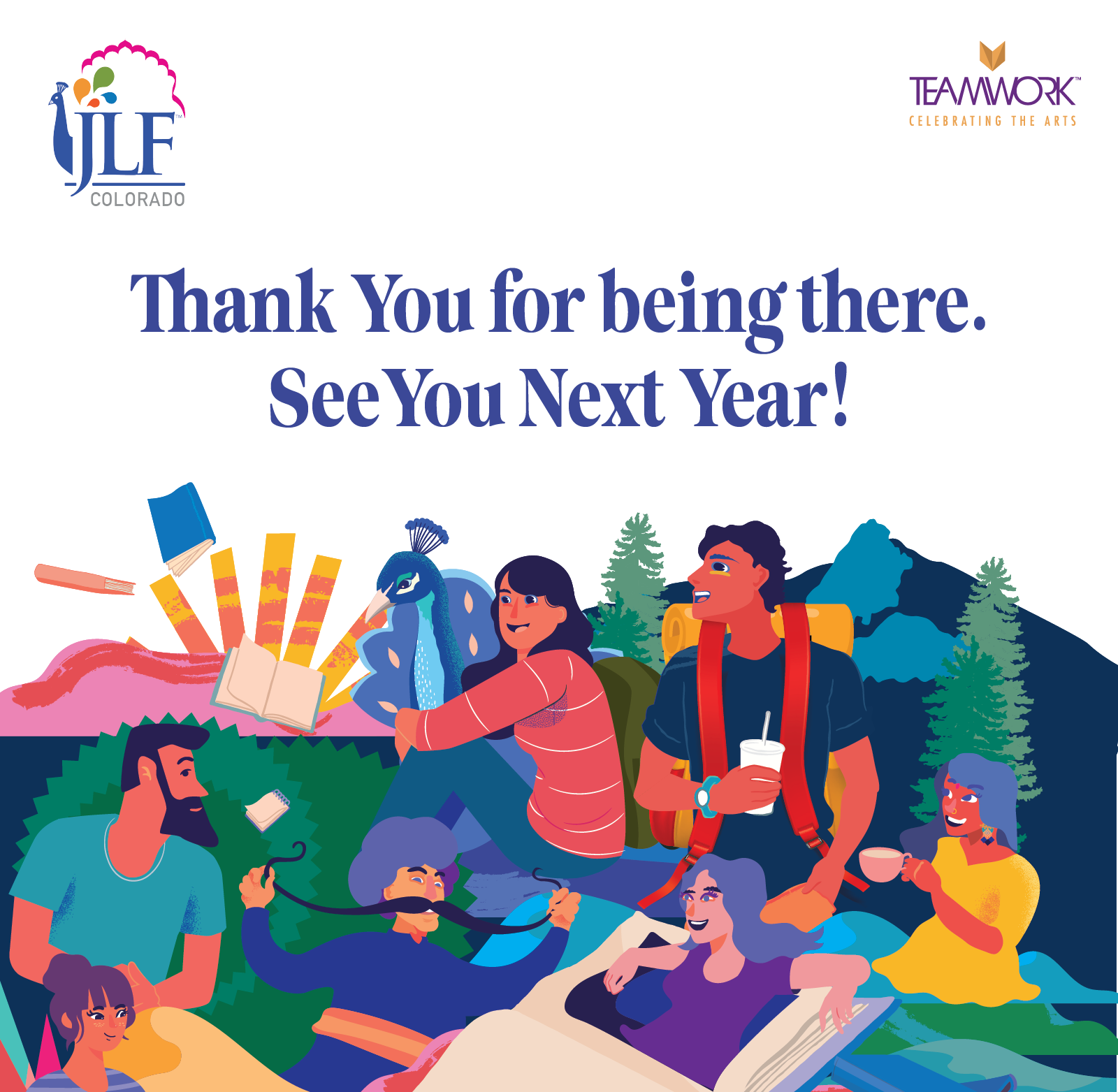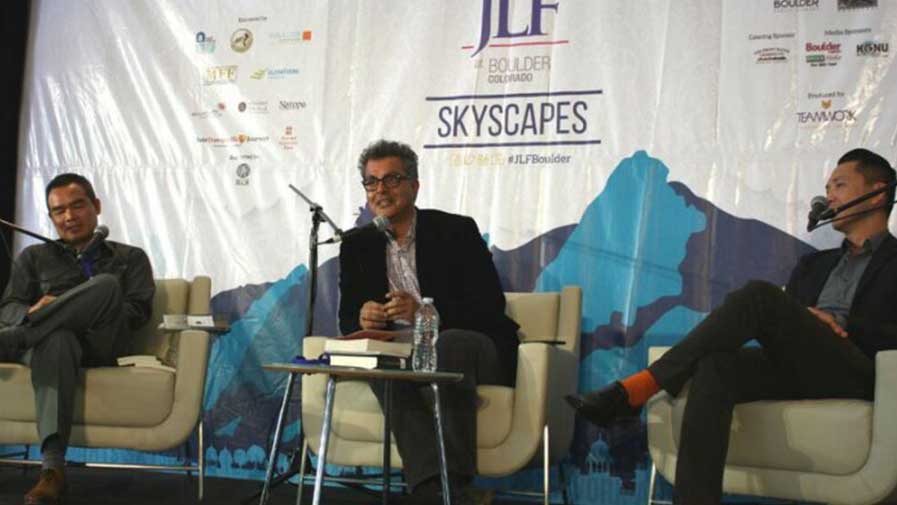


No Refuge from War Memories
By Debra Nicholson, Official JLF@Boulder Blogger
War memories never die. They persist in the consciousness of the winners and the losers, and generations of survivors afterward.
“All wars are fought twice, the first time on the battlefield, the second time in memory,†says Pulitzer Prize winning author Viet Thanh Nguyen.
Andrew Lam, senior editor of New America Media and former commentator on NPR’s “All Things Considered,†concurs. When he and his family get together for dinner, in minutes the conversation turns to lives they left behind in Vietnam.
Those who live and those who die remain within the collective memory; trauma never ends. When we memorialize the names of the 58,000 men and women at the Vietnam War Memorial, we forget the millions of casualties in Vietnam, Cambodia, and Laos, and we forget those soldiers who came back, alive but wounded, mentally and physically, and their families who suffer with them, as well as the refugees displaced by the conflict.
Who gets to decide how memories are reconstituted? Nguyen referred to the “industries of memory;†the more powerful nations control their war stories through film, literature, and art, especially if they’ve won, but even if, like the U.S. in the Vietnam War, they’ve lost.
As writers, both Lam and Nguyen are called upon by their own community to represent the Vietnamese experience in a positive light, and to be the voice of the “voiceless,†by the industry looking for the new “hot voice.†Both agreed that they cannot possibly represent the range of experience of the Vietnamese, just as there is no one voice for white people.
How can war be stopped? Well, we can certainly try to be more “human†towards each other, but wars are often started for “humanitarian reasons†when conflicts serve national interests.
As long as we deny our inhumanity, we will never recognize that we, our own relatives, and our friends, are capable of doing inhuman acts. Moderator Amitava Kumar remarked that even writers must consider themselves complicit. Lam recalled a situation as a cub reporter at a refugee camp when a woman asked him to save her by marrying her, and he postponed answering until the next day, knowing he would never see her again, thus moving from an observer to a participatory stance.
It’s estimated that by the end of 2015, more than 65 million people across the globe had been displaced by conflict. Has the world moved from being somewhat sympathetic, to simply not wanting to know, to outright hostility?
Until we recognize our own capability for inhumane acts, we can run but we can never hide from blame for the ravages of war and its brutalizing memories.



Leave a comment